A journey into dreams through songs from Dowland to The Kinks; a Swiss director who, Covent Garden’s Director of Opera Kasper Holten assures us, is “one of the most important European theatre artists”; a Norwegian chanteuse who, I assure you, is a performer of real originality. All that should add up to something just a little bit extraordinary, shouldn’t it? Sadly not. What I saw last night was the kind of thing I’d shrug off having chosen at random from offerings at the Edinburgh Fringe.
Perhaps anticipation was misguided: buy into Christoph Marthaler’s reputation as “radical and renowned”, and you might expect, as I did, a visionary parallel to Robert Carsen’s giant beds for his long-running production of Britten's A Midsummer Night’s Dream. What you see on entering the Linbury is a hotel room with fitted cupboards and floral wallpaper of repellent aspect, more fit for Ayckbourn than for avant-garde. That means the participants – two crooners, one doubling as a very accomplished keyboard master (Bendix Dethleffsen), said chanteuse Tora Augestad, and a senior actress – have to work all the harder with the lights up to make their mildly surreal moods and deeds register. The audience doesn’t know where to laugh; it’s not edgy, just tentative. Is this perhaps Swiss humour?
 The idea is a kind of dreamsong sequence the Germans might call a Traumliederabend. The realistically tasteless room happens to have three sets of occupants simultaneously. The future pianist is getting up at the start and sings a promising old canon about the "golden sun" with a haunting offstage voice (Augestad’s). The two singers listed as “King’s Daughter” and “King’s Son” (Michael von der Heide) come on as servants making up the bed and then get into it, uneasy non-sleepers and non-touchers. The older woman – a deadpan, battered-looking Nikola Weisse – crosses the stage repeatedly, recites broken poetry very quietly, fiddles with a music stand, clambers up a cupboard (pictured above, with von der Heide and Augestad) and eats spaghetti out of her handbag to a trio from the pink bathroom giving us the reconciliation music of Mozart’s Marriage of Figaro (I did laugh at that odd juxtaposition).
The idea is a kind of dreamsong sequence the Germans might call a Traumliederabend. The realistically tasteless room happens to have three sets of occupants simultaneously. The future pianist is getting up at the start and sings a promising old canon about the "golden sun" with a haunting offstage voice (Augestad’s). The two singers listed as “King’s Daughter” and “King’s Son” (Michael von der Heide) come on as servants making up the bed and then get into it, uneasy non-sleepers and non-touchers. The older woman – a deadpan, battered-looking Nikola Weisse – crosses the stage repeatedly, recites broken poetry very quietly, fiddles with a music stand, clambers up a cupboard (pictured above, with von der Heide and Augestad) and eats spaghetti out of her handbag to a trio from the pink bathroom giving us the reconciliation music of Mozart’s Marriage of Figaro (I did laugh at that odd juxtaposition).
If forced to draw a theme from this random selection, you might come up with alienation played out against love-music – most “ironically” the solitary lady’s actions to Wagner's Tristan Prelude and Mahler’s Adagietto – which finally declares itself in the last two numbers, Augestad’s strong delivery of a distressing Berg Lied and a folksong about death and the king’s children which fades effectively to near-inaudibility. When that’s intended, the very quiet delivery is a virtue. But for once I was crying out for mikes elsewhere: these aren't opera singers, after all, though Dethleffsen's consummate pianism highlights remarkable harmonies in Schumann and a real gem, "Sonny Boy" as immortalised by Al Jolson. Still, without amplification, energy levels seem low even in the predictably parodied pop songs. Von der Heide’s joke dancing and the repeated gag about artists in the limelight losing their poise aren’t funny for more than a moment, if that’s the intention.
Above all, besides loud and soft and the contrast of idioms, there’s no intuitive shape to the sequence. If it’s meant to be dispiriting, then it works. But even the Linbury, as stubbornly unatmospheric as ever, seems too big for such a musical offering. Bring back Augestad by all means, miked in an evening of Weill with the fabulous Norwegian five-piece ensemble band where she’s first among equals, Music for a While. But on this evidence I wouldn’t bank on a large-scale Marthaler production going down any better in the main house than recent flops from Martin Kušej (Idomeneo), Katharina Thoma (Un ballo in maschera) and John Fulljames (Mahagonny). I’m an admirer of Holten and his affable leadership, but he needs to come up with something special soon.




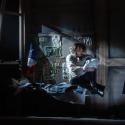
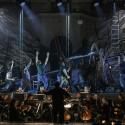
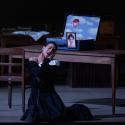
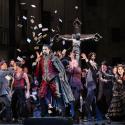

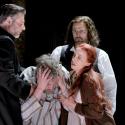
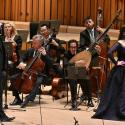
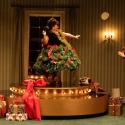
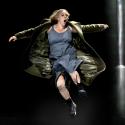
Add comment